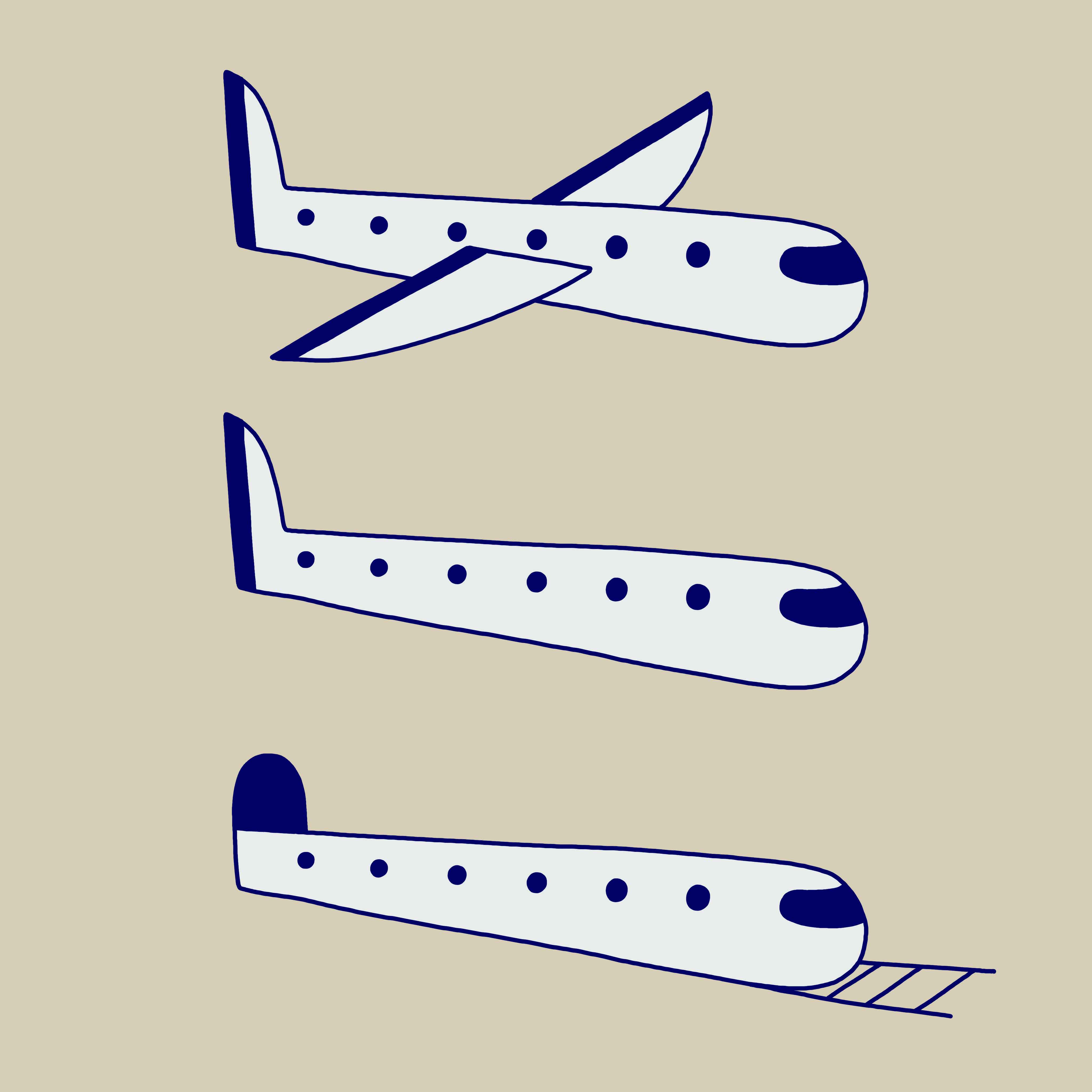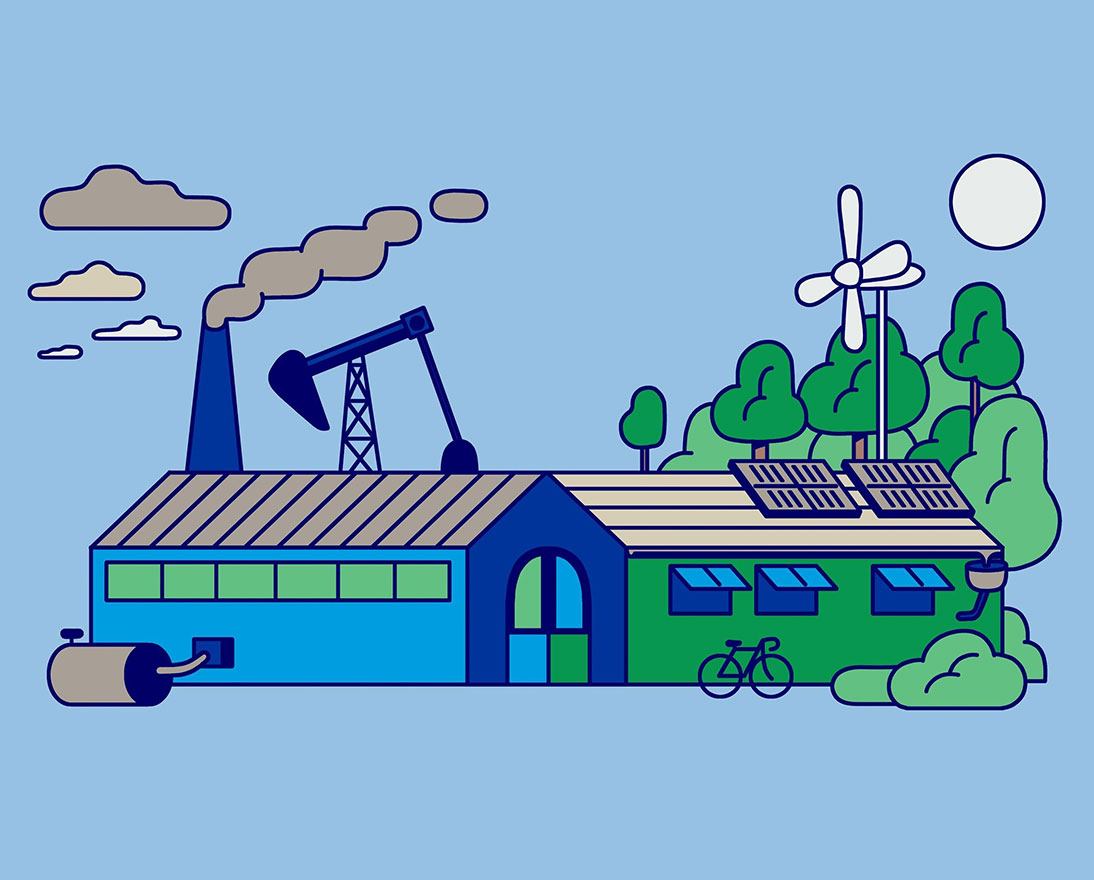Is The Coronavirus Showing Us How We Can Transition To A Low Carbon World?
SustainabilityArticleMarch 20, 20208 min read
Thinking about some of the ways our lives may change if we’re to limit the effects of climate change
The way we live and work is being utterly transformed as the world tries to stop the spread of the deadly coronavirus. Most of us are doing what we have to and getting on with it, but would you be prepared to do the same to halt climate change? Because we’ve got to fix the climate emergency or the world burns. If humanity is able to bring down carbon emissions by enough to limit global warming to 1.5 degrees, the target set by the Intergovernmental Panel on Climate Change (IPCC), then it is going to require significant changes to the way we live, much like the way we’re responding to coronavirus. Like what’s happening now, these changes will impact every aspect of our lives. We’ve already been told we’re going to have to fly less, waste less and eat less meat, but what does that really mean?
One area which has already been significantly transformed by the coronavirus and which will need to see similar changes to limit climate change is the way we travel. Transport was responsible for 14% of all global carbon emissions in 2014 according to the IPCC and is one of the areas most under pressure to change. A large chunk of this is transporting goods rather than people, but in 20 years time you’re far more likely to be sharing an automated electric vehicle with other people than driving your own petrol powered car, with fossil fuel powered vehicles likely to be banned by governments at some point in the future.
“Fast deployment of zero emissions technology, such as electric cars or fuel cell ships, is an important part of the solution,” Julia Poliscanova, clean vehicles director at the Transport & Environment thinktank tells VICE. “Future mobility will have to be zero emission, autonomous and shared, reducing car ownership and taking space away from cars towards new mobility solutions and people. Cities must lead the way, by making their centres zero emission and free of all conventional cars in the next decade.”
Karl Gray, global head of motor and personal lines for Zurich Insurance Group, says:
“‘Although car ownership of traditional vehicles will reduce, there is likely to be an increase in the usage of the remaining environmentally friendly vehicles. This is because automation and shared usage will reduce the cost to the end user and improve accessibility and convenience. Indeed, there could be a shift away from traditional forms of public transport to these shared, partly or fully automated, environmentally friendly cars.’”
Before coronavirus led to most international travel grinding to a halt, flying was responsible for 2% of the world's carbon emissions, according to the International Air Transport Association (IATA) and that was expected to grow with experts predicting that more people would want to fly around the world. Whatever happens after the virus, people will need to fly a lot less and there’s a building social expectation for this to happen. In Sweden this has even led to the emergence of a new word ‘Flygskam’ which translates to ‘flight shame’. The shaming of frequent flyers has even led to a drop in the number of airline passengers in Swedish airports. This drop will need to happen elsewhere if we’re going to lower emissions.

Another part of our lives which will need to see big changes is what we eat, with agriculture, forestry and other land uses causing roughly a quarter of greenhouse gas emissions according to the IPCC. You have probably been told going vegan will help save the planet as well as making animals lives better and it would, but transitioning to a low-carbon economy does not mean we’re all going to have to abandon meat entirely. We’re just going to have to eat less real red meat and start eating more plant-based proteins.
“Smart meters are brilliant, whether it's for water or for energy, because it makes people value what they're consuming. When you pay for water, you suddenly realise ‘Wow, having a five minute shower is not as good as having a one minute shower’, because you're wasting a lot of water.”
John Scott
If the sound of eating fewer burgers isn’t appealing, the growth in popularity of burgers made with plant-based proteins should be reassuring. Bram Meijer, regional marketing director for Beyond Meat says: “By producing meat directly from plants, people can enjoy more of their favourite meals by shifting the protein at the centre of the plate to plant-based meat.”
It won’t just be what’s on our plates or how we get around that needs to change. How we consume energy at home is also going to be transformed. John Scott, head of sustainability risk for Zurich Insurance Group thinks we will see more smart meters. “Smart meters are brilliant, whether it's for water or for energy, because it makes people value what they're consuming. When you pay for water, you suddenly realise ‘Wow, having a five minute shower is not as good as having a one minute shower’, because you're wasting a lot of water.”
The ‘internet of things’ oozing into our homes means we’re measuring every drop of water and energy we use, but it will have to be done with devices which last longer and don’t need replacing as often as they do now. John Scott adds, “From regular phone upgrades, to washing machines and other appliances that aren’t built to be repaired, the modern world comes at a big cost to the environment, in carbon-intensive production and ecologically damaging resource extraction.”
This publication has been prepared by Zurich Insurance Group Ltd and Vice UK Limited and the opinions expressed in it are those of Zurich Insurance Group Ltd and Vice UK Limited as of the date of writing and are subject to change without notice. This publication has been produced solely for informational purposes. The analysis contained and opinions expressed herein are based on numerous assumptions. Different assumptions could result in materially different conclusions. All information contained in this publication has been compiled and obtained from sources believed to be reliable and credible but no representation or warranty, express or implied, is made by Zurich Insurance Group Ltd or any of its subsidiaries (the ‘Zurich Group’) or Vice UK Limited or any of its subsidiaries (the ‘Vice Group’) as to their accuracy or completeness. This publication is not intended to be legal, underwriting, financial, investment or any other type of professional advice. Persons requiring advice should consult an independent adviser. The Zurich Group and the Vice Group disclaim any and all liability whatsoever resulting from the use of or reliance upon this publication. Certain statements in this publication are forward-looking statements, including, but not limited to, statements that are predictions of or indicate future events, trends, plans, developments or objectives. Undue reliance should not be placed on such statements because, by their nature, they are subject to known and unknown risks and uncertainties and can be affected by other factors that could cause actual results, developments and plans and objectives to differ materially from those expressed or implied in the forward looking statements. The subject matter of this publication is also not tied to any specific insurance product nor will it ensure coverage under any insurance policy. This publication may not be reproduced either in whole, or in part, without prior written permission of Zurich Insurance Group Ltd, Mythenquai 2, 8002 Zurich, Switzerland and Vice UK Limited 2-4 New North Place, London, UK EC2A 4JA. Zurich Insurance Group Ltd and Vice UK Limited expressly prohibit the distribution of this publication by or to third parties for any reason. Neither the Zurich Group nor the Vice Group accept liability for any loss arising from the use or distribution of this presentation. This publication is for distribution only under such circumstances as may be permitted by applicable law and regulations. This publication does not constitute an offer or an invitation for the sale or purchase of securities in any jurisdiction.


